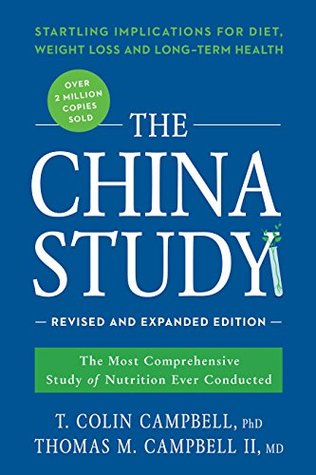More on this book
Community
Kindle Notes & Highlights
Read between
August 18 - August 20, 2019
What made this project especially remarkable is that, among the many associations that are relevant to diet and disease, so many pointed to the same finding: people who ate the most animal-based foods got the most chronic disease. Even relatively small intakes of animal-based food were associated with adverse effects. People who ate the most plant-based foods were the healthiest and tended to avoid chronic disease.
The distinctions between government, industry, science, and medicine have become blurred. The distinctions between making a profit and promoting health have become blurred.
Many readers of the first edition of this book and viewers of three especially successful documentary movies in which our work was featured—Forks Over Knives and PlantPure Nation in the United States (directed by my son Nelson), and Planeat in England—have told me that their lives have been changed for the better.
This is the story of how food can change our lives.
Old age can and should be graceful and peaceful.
These researchers explained that animal protein, unlike plant protein, increases the acid load in the body.3 An increased acid load means that our blood and tissues become more acidic. The body does not like this acidic environment and begins to fight it. In order to neutralize the acid, the body uses calcium, which acts as a very effective base. This calcium, however, must come from somewhere. It ends up being pulled from the bones,
We have had evidence for well over a hundred years that animal protein decreases bone health. The explanation of animal protein causing excess metabolic acid,
Professor Hegsted believed that excessively high calcium intake over a long time impaired the body’s ability to control how much calcium it uses and when.
BMD is a measure of bone density that is often used to diagnose bone health.
Eat a variety of whole plant foods, and avoid animal foods, including dairy. Plenty of calcium is available in a wide range of plant foods, including beans and leafy vegetables and most non-dairy “milks.” As long as you stay away from refined carbohydrates, like sugary cereals, candies, plain pastas, and white breads, you should have no problem with calcium deficiency.
Eating should be an enjoyable and worry-free experience, and shouldn’t rely on deprivation. Keeping it simple is essential if we are to enjoy our food.
You not only lose your taste for meat, you begin to discover new flavors in much of your food, flavors that were dulled when you ate a primarily animal-based, sugar-and-fat-laced diet.


